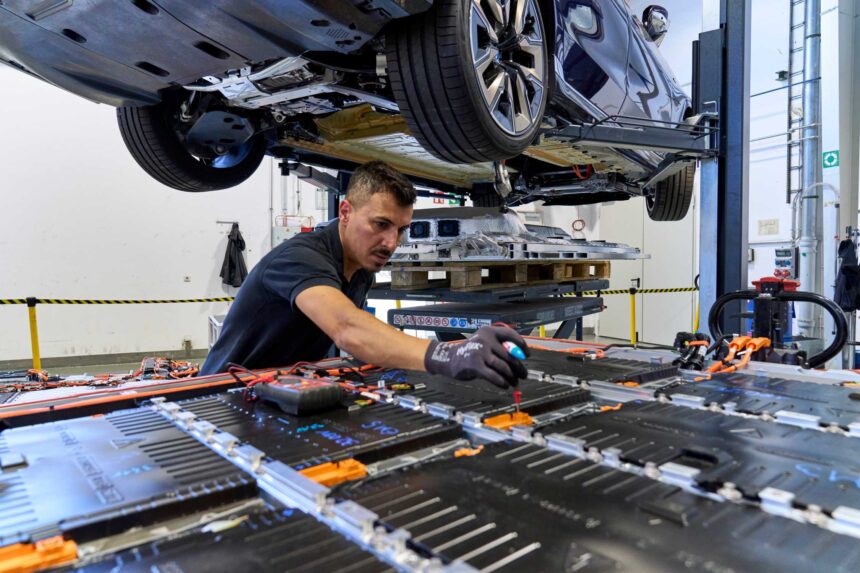BMW Group has taken a significant step towards establishing a global EV battery recycling network by partnering with South Korea’s SK Ecoplant Company. This move comes in response to the increasing global sales of electrified vehicles, highlighting the company’s commitment to sustainability and circular economy practices.
The German automaker initially launched its first recycling operation for EV battery raw materials at its BMW Brilliance Automotive joint venture in China in 2022. Building on this initiative, BMW has now joined hands with SK tes, SK Ecoplant’s recycling unit, to establish a global battery recycling network. The partnership kicked off with the establishment of a “pan-European” network in 2025.
Through this collaboration, BMW aims to recover essential battery minerals such as cobalt, nickel, and lithium from used EV batteries and reintegrate them into its battery materials supply chain. SK tes will process the black mass generated from crushed and shredded waste batteries at its newly-built battery recycling plant in Rotterdam, Netherlands. The facility utilizes a hydrometallurgy chemical process to extract these minerals and has a processing capacity of 10,000 tons of black mass from batteries per year.
The recovered minerals will be utilized in BMW’s new GEN 6 drivetrain, showcasing a closed-loop approach to resource utilization. Looking ahead, BMW has plans to expand the recycling partnership with SK tes to include the US, Mexico, and Canada in 2026, further solidifying its commitment to sustainable practices.
Jörg Lederbauer, BMW AG’s head of Circular Economy, Spare Parts Supply High Voltage Battery, and Electric Powertrain, emphasized the benefits of such partnerships in enhancing efficiency in the circular economy. He stated, “Partnerships like this increase our efficiency in terms of the circular economy. In the closed-loop process, all partners mutually benefit from their experiences.”
This collaboration between BMW and SK Ecoplant Company signifies a significant milestone in the automotive industry’s transition towards sustainable practices and resource conservation. By establishing a global EV battery recycling network, the two companies are setting a precedent for responsible waste management and resource utilization in the electrified vehicle sector.







